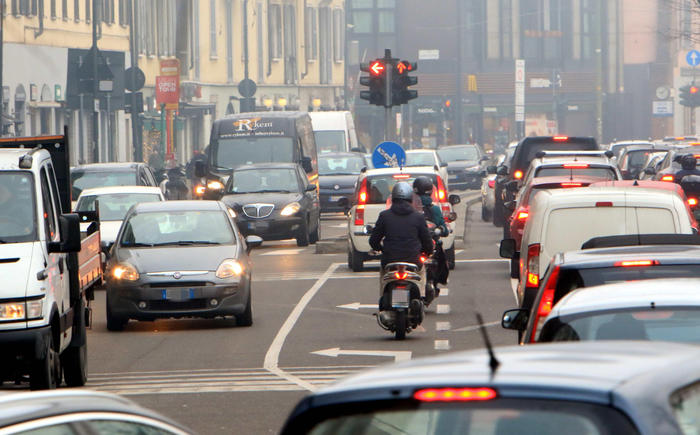For a part of the population, life during the lockdown was an opportunity to reflect on the priorities of values, on lifestyles, on how we want to lead existence. Now that we are looking out again, at the beginning of phase 3 we do not all want to go back to 'as we were', rather we think that changing the way we live is possible, especially in the event of the post-emergence Coronavirus environmental impact and sustainability. June 6th is the World Degrowth Day, the Global Degrowth Day,which with the motto "a good life for all" promotes more sustainable, healthy and aware lifestyles. Also in Italy, the Happy Degrowth Movement and the Degrowth Association have joined the international initiative by organizing meetings, public events and actions throughout the country to propose concrete alternatives to the capitalist paradigm of economic growth and the depletion of our resources. Planet.
In this year of great upheavals, many people think "We are not going back to normal, because that normality was the problem" - says Karl Krähmer, of the MDF Board - That normality denounced for years by a myriad of scientists who in every way tried to warn us of the now outdated limits of this Planet. That normalcy that for some time as a Happy Degrowth Movement we have been trying to change, one piece of awareness at a time, one habit after another. The day has been launched for some years to criticize 'normality', to start a debate on what and how much we really need, on how we can get better with less, without the exploitation of the weakest by that part of the world that fear and thrive in an illusory wealth is based. We take this opportunity again this year to reflect and propose another possible world. The world of happy degrowth, in which a fair amount of well-being, evenly distributed allows us to live peacefully, enjoying the natural heritage, culture and rich social relationships, in harmony with the ecosystem ".
Here is the decalogue to begin to approach the themes of Degrowth:
Shorten the distances between production and consumption, both in physical and human terms
Rediscover the cycle of seasons and the relationship with the land
Redefine your relationship with goods and goods
Rebuilding social interactions through the logic of the gift
Make community
Extend life to things, rejecting the logic of the "latest model"
Rethinking technological innovation.
Being there while weighing as little as possible on the environment, as a form of maximum respect for ourselves and future generations.
Redefine your relationship with work.
Spreading the principles of Happy Degrowth
Thus the founder Maurizio Pallante explains what is meant by degrowth, very often demonized as a concept without knowing exactly what it is: "degrowth is not only a reasoned and reasonable criticism of the absurdities of a founded economy on the growth of the production of goods, but is characterized as a radical alternative to its system of values. It was born in the economic sphere, the same sphere in which the word growth was arbitrarily charged with a positive connotation, but immediately goes beyond the philosophical one. It is a cultural revolution that does not accept the reduction of quality to quantity, but makes qualitative evaluations prevail over quantitative measurements. It does not believe, for example, that the growth in the production of food that is thrown away, of petrol that is wasted in the car queues, of the consumption of medicines, lead to a growth in well-being because they make the product grow in terno gross, but considers them signs of malaise, factors of worsening quality of life. The decrease is not the quantitative reduction of the gross domestic product. It's not the recession. Nor is it identified with the voluntary reduction of consumption for ethical reasons, with renunciation, because renunciation implies a positive evaluation of what one renounces. Degrowth is the rational rejection of what is not needed . It does not say: «I do without it because it is right». He says: "I don't know what to do with it and I don't want to spend a part of my life working to earn the money needed to buy it." Degrowth is not achieved by simply replacing the plus sign with the minus sign in front of the indicator that evaluates human activity in quantitative terms.
Degrowth aims to reduce the consumption of goods that do not satisfy any need (for example: the waste of energy in poorly insulated buildings), but not the consumption of goods that can only be had in the form of goods because they require complex technology ( for example: magnetic resonance imaging, the computer, but also a pair of shoes), which, however, should be purchased as locally as possible. It is proposed to reduce the consumption of goods that can be replaced with self-produced goods whenever this leads to a qualitative improvement and a reduction in pollution, resource consumption, waste and costs (for example: homemade bread) . His goal is not the least, but the least when it is best . In an economic system aimed at the most even when it is worse, degrowth is the fundamental element of a change in cultural paradigm, of a different system of values, of a different conception of the world. It is a gentle revolution aimed at developing technological innovations that reduce the consumption of energy and resources, pollution and the quantity of waste per unit of product; to establish human relationships that favor collaboration over competition; to define a system of values in which emotional relationships prevail over the possession of things; to promote a policy that enhances common goods and the participation of people in the management of public affairs. If for each product unit the consumption of resources and energy decreases, if the waste is reduced and the materials contained in the discarded objects are reused, the gross domestic product decreases and well-being improves. If collaboration prevails over competition, if individuals are placed in solidarity networks, the need to purchase services to the person decreases and the gross domestic product decreases, but people's well-being improves. If the length of the daily time spent in the production of goods is reduced, the time that can be devoted to human relations, the self-production of goods, creative activities increases: the gross domestic product decreases and well-being improves.





/cloudfront-eu-central-1.images.arcpublishing.com/prisa/HMTVVV3HLFH5LDEHUMGY5HTJ6I.jpg)



